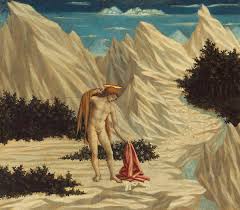«Et coram patre le si fece unito». Riflessioni sulla povertà e i suoi equivoci
(“Et Coram Patre Le Si Fece Unito”: Reflections on Poverty and its Equivocations)
DOI:
https://doi.org/10.13135/2038-6788/10156Keywords:
Dante, Mystic Marriage, Pope Francis, Plato, Poverty, Renunciation to the Self, Saint Francis, Theology of PovertyAbstract
The theme of poverty as spiritual virtue, as radical renunciation to what belongs to oneself and, in the end, as renunciation to one’s own very self is already present in Greek thought, which alludes to it for example through Plato’s image of Penia, Eros’ mother. In the Christian tradition, we find paupertas spiritu, the spiritual poverty mentioned in Jesus’ Sermon on the Mount. The formidable little medieval treatise on the Mystic Marriage of San Francis to Lady Poverty develops this theme through a bold textual exegesis that retrieves the already patristic theme of the Robe of Light: here Poverty becomes Adam’s original robe, his luminous body ante lapsum, before the Fall. The reduction of the theme of poverty to its sociological and material aspects means a betrayal of the spirit of the Gospel and an entanglement in contradictions that are perhaps insoluble.


